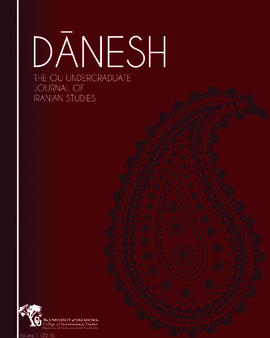| dc.contributor.author | Bowman, Mary | |
| dc.contributor.editor | Akhlaghi, Andrew | |
| dc.contributor.editor | Gharipour, Elena T. | |
| dc.contributor.editor | Bednarek, Ellie | |
| dc.contributor.editor | Gellman, Jonah | |
| dc.contributor.editor | McCann, Samuel | |
| dc.contributor.editor | Siddiqui, Wajeeha | |
| dc.contributor.editor | Yoo, Jiyoun | |
| dc.creator | Bowman, Mary | |
| dc.date.accessioned | 2016-02-24T20:39:18Z | |
| dc.date.accessioned | 2021-04-14T15:38:04Z | |
| dc.date.available | 2016-02-24T20:39:18Z | |
| dc.date.available | 2021-04-14T15:38:04Z | |
| dc.date.issued | 2016 | |
| dc.identifier.uri | https://hdl.handle.net/11244.46/61 | |
| dc.description.abstract | The taking of the U.S. Embassy in Tehran in the fall of 1979 began a long, complicated 444 days of negotiations and frustrations in insuring the return home of the hostages. In early April 1980, President Jimmy Carter came to the decision that diplomatic negotiations were coming to a dead end, and the time had come to act. With this decision, Carter was faced with divisions among some of his key advisors, especially between his hawkish National Security Advisor, Zbiginiew Brzezinski, and his dovish Secretary of State, Cyrus Vance. However, the President made the final call to conduct a rescue mission to free the hostages. Unfortunately, the rescue mission, by the code name Operation Eagle Claw, came to a disastrous end in the Iranian desert. The decision to conduct Operation Eagle Claw led to the resignation of Cyrus Vance, Carter’s loss of the re-election, and the United States’ international credibility being destroyed. | en_US |
| dc.format.extent | 15 pages | |
| dc.format.extent | 2,074,759 bytes | |
| dc.format.medium | application.pdf | |
| dc.language.iso | en_US | en_US |
| dc.relation.ispartofseries | Dānesh ; 1 (2016) | |
| dc.relation.requires | Adobe Acrobat Reader | |
| dc.rights | Attribution-NonCommercial-ShareAlike 3.0 United States | * |
| dc.rights.uri | https://creativecommons.org/licenses/by-nc-sa/3.0/us/ | * |
| dc.subject | Operation Eagle Claw, Iran, 1980 | en_US |
| dc.title | Operation Eagle Claw : the ramifications of political divisions in U.S. decision-making during the Iranian hostage crisis of 1979-1981 | en_US |
| dc.type | Article | en_US |
| dc.type | Document | |
| dc.type | text | |
| dc.contributor.sponsor | Farzaneh Center for Iranian and Persian Gulf Studies | |
| dc.contributor.sponsor | University of Oklahoma. College of International Studies | |
| dc.contributor.sponsor | University of Oklahoma. College of International Studies. Department of International and Area Studies | |
| dc.description.undergraduate | undergraduate | |

